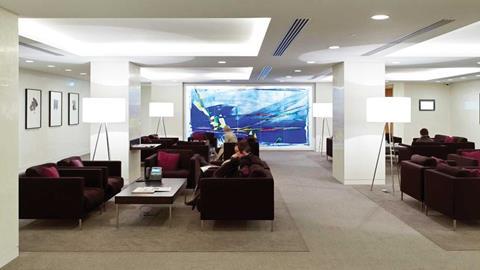Simon Branigan and Richard Hodgson assess the benefits of the Contextual Recruitment System.
As a global law firm, Linklaters (London headquarters pictured) supports clients from a wide array of jurisdictions who embody a variety of cultures, personalities and backgrounds. Carbon-copy lawyers and business service professionals recruited to adhere to a set of stereotypical traits would have little chance of building the deep and lasting relationships that we seek with our clients. This is only one of a myriad reasons for ensuring that we recruit from as diverse a talent pool as possible.
We recently announced that we would be using a groundbreaking contextual recruitment tool to improve graduate social mobility. The revolutionary Contextual Recruitment System (CRS) was devised by diversity experts Rare Recruitment. As the first technology and data-driven tool of its kind in the UK, the system hardwires social mobility metrics into our existing graduate recruitment database. We will be able to collect standardised data on a candidate’s economic background and personal circumstances, and take a consistent approach when assessing their achievements, selection process performance and hiring potential.
Rare built two new databases to power the CRS: the first contains the exam results of over 4,000 secondary schools and sixth-form colleges nationally; the second contains 2.5 million UK postcodes. The CRS uses this information, together with candidates’ responses to questions asked during the application process, to produce real-time contextual information on all candidates.
In selecting the brightest legal minds in the market, we do of course look at academic achievement. But we also deeply value impressive, non-academic achievements. Contextualising an individual’s accomplishments means we can truly understand the situation in which those academic and personal successes have been achieved and how their performance compares to peers from similar backgrounds.
For example, having 4As at A-Level and going to an underperforming school will not necessarily push someone through, but it might tell us a bit more about that candidate, their drive and their ambition. As graduate recruitment partners, we are confident that we already have a sophisticated approach to analysing a candidate’s full background. This tool, will help us to look further at the substance and beyond the polish, ensuring that we are employing intelligent, well-rounded individuals from broad walks of life, who will bring different experiences and perspectives to our business.
This is just one piece in a much bigger jigsaw puzzle designed to tackle the issue of diversity and inclusion. We know that the legal profession has lagged behind others for some time and we see how traditional graduate recruitment can inhibit social mobility, often to the advantage of those who have had more opportunities in life. We have implemented a number of initiatives to tackle these issues, some of which have been in place for several years.
We have partnered with Sponsors for Educational Opportunities and the Amos Bursary, which are not-for-profit organisations focused on improving access to the most competitive professions for students from under-represented and minority backgrounds. We also work with Pathways Plus, an organisation offering support to high-achieving, low-income law undergraduates, and the Social Mobility Foundation, which identifies and supports students who would be the first in their families to attend university.
We are also committed to working with local schools and colleges to create real access to opportunities for young people who are less likely to have any networks in the legal sector. Our Realising Aspirations programme offers local young people the opportunity to spend time understanding the workings of a corporate law firm, the realities of working life and – through visits to other organisations – a wider appreciation of careers in the City. Each year over 200 Linklaters people take part in activities such as hosting work experience, mentoring, tutoring and careers events, inspiring over 2,400 local young people in the London Borough of Hackney. It is the simple things that we know make a huge difference in supporting a young person to realise their aspirations. It is certainly a humbling experience for us but, more importantly, it is incredibly valuable and cherished by those who walk through our doors.
All of these activities combined, aim to improve the skills, heighten aspirations and broaden the experiences of those within our immediate community. We want to set a benchmark for social mobility, challenging and supporting other employers, and sharing best practice.
But we are not in this alone and indeed we have benefited from the shared expertise of our fellow Social Mobility Business Compact Champions, a group set up in November 2014 by the Department for Business, Innovation and Skills to create a benchmark for social mobility. The legal sector has a long way to go, and we are continuously learning on this journey, but every time we successfully recruit someone who has defeated the odds to get here, we know that we have successfully identified true talent.
Using the CRS is another step in the right direction for us and we will continue to find innovative ways to improve social mobility and access. We do this for the benefit of our business and our clients. But also because it is the right thing to do.
Simon Branigan and Richard Hodgson are graduate recruitment partners at Linklaters
































No comments yet